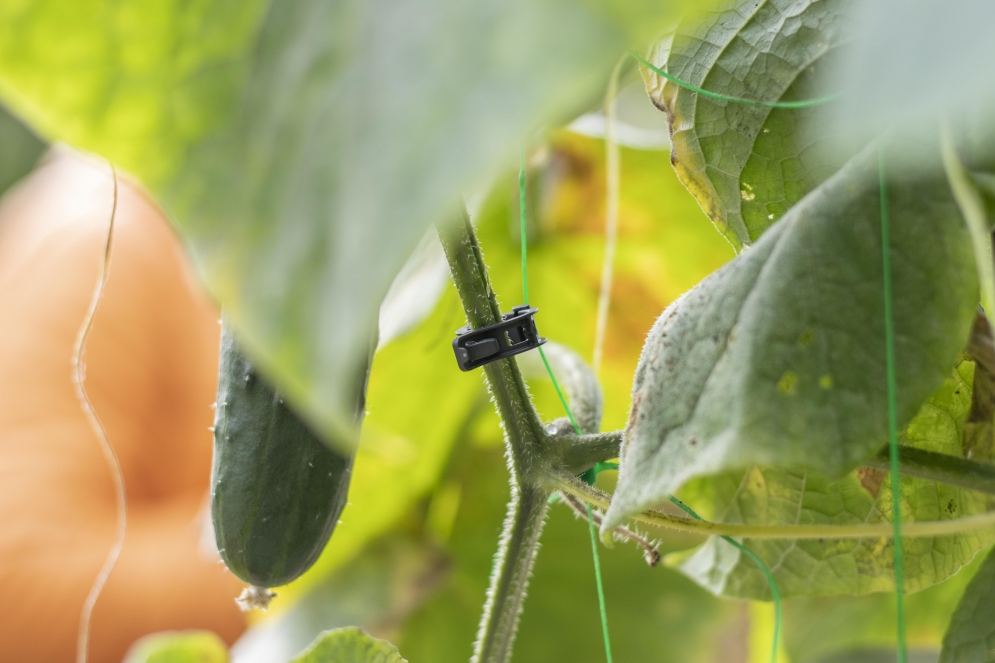One company committed to this type of product and leading the way toward a more sustainable future is ARaymond Agriculture, a global firm headquartered in Spain which produces a wide range of eco-friendly clipping and fastening solutions for the greenhouse and agricultural industries.
Oriol Peiris, digital marketer at ARaymond Agriculture, said the company first ended its use of virgin plastic and committed to using 100 percent recycled plastic. Then, ARaymond developed a new line of biodegradable fastening solutions for agriculture.
“We saw the market was willing to have eco-friendly products, and wanted to make our contribution to this movement, which will only keep growing,” Peiris said. “Our biodegradable clips for greenhouses were first introduced four years ago, and the line has seen major growth in the past two years, especially across Europe (France, Holland), where there is a larger appetite for this type of innovation.”
Production of both the recycled plastic and biodegradable solutions is done by ARaymond in Spain. ARaymond is an industry pioneer in the production of fully certified compostable and biodegradable clips for greenhouses, which they tested by putting the clips in sand for 40 weeks to confirm they would completely disappear.
ARaymond also supports international environmental initiatives such as Tree-Nation and The United Nations Global Compact. Being eco-friendly has its challenges though, especially with the biodegradable solutions being developed by ARaymond and others. For example, humidity and temperature changes in the greenhouse environment can cause some fasteners to break if not developed properly, increasing the cost of production.
Walt Cherneski, ARaymond Agriculture North American sales engineer, said that despite these hurdles, the company is dedicated to their biodegradable project line as a matter of principle.
“ARaymond wants to save the land. We want to save the wildlife. With compostable products, we want to help save the earth,” Cherneski said. “We try to lead with innovating at the product level, and be ahead of the curve. We have invested in these products even though it’s more expensive to make them. We believe in the importance of developing sustainable agriculture as a response to all the critical environmental problems which the world is facing today.”
The situation in North America is a bit more complicated. Cherneski said that due to the fact that more landfill space is available in the United States than in Europe, the appetite for green technology in agriculture is lower in North America right now. Interest is highest in Canada, where some unique eco-friendly arrangements have been developed by agriculture leaders and sustainability is a hot topic.
For example, In Chatham, Ontario, Truly Green Farms has a greenhouse that’s connected to an ethanol plant and utilizes the waste heat and carbon dioxide produced in the ethanol fermentation process for the production of greenhouse vegetables.
“The movement is taking shape slowly but surely. In the past, purchasing decisions were more focused strictly on costs, but the younger generation is moving forward because they don’t want to keep filling up landfills. They’re willing to invest a little more to help save the planet,” Cherneski said.



